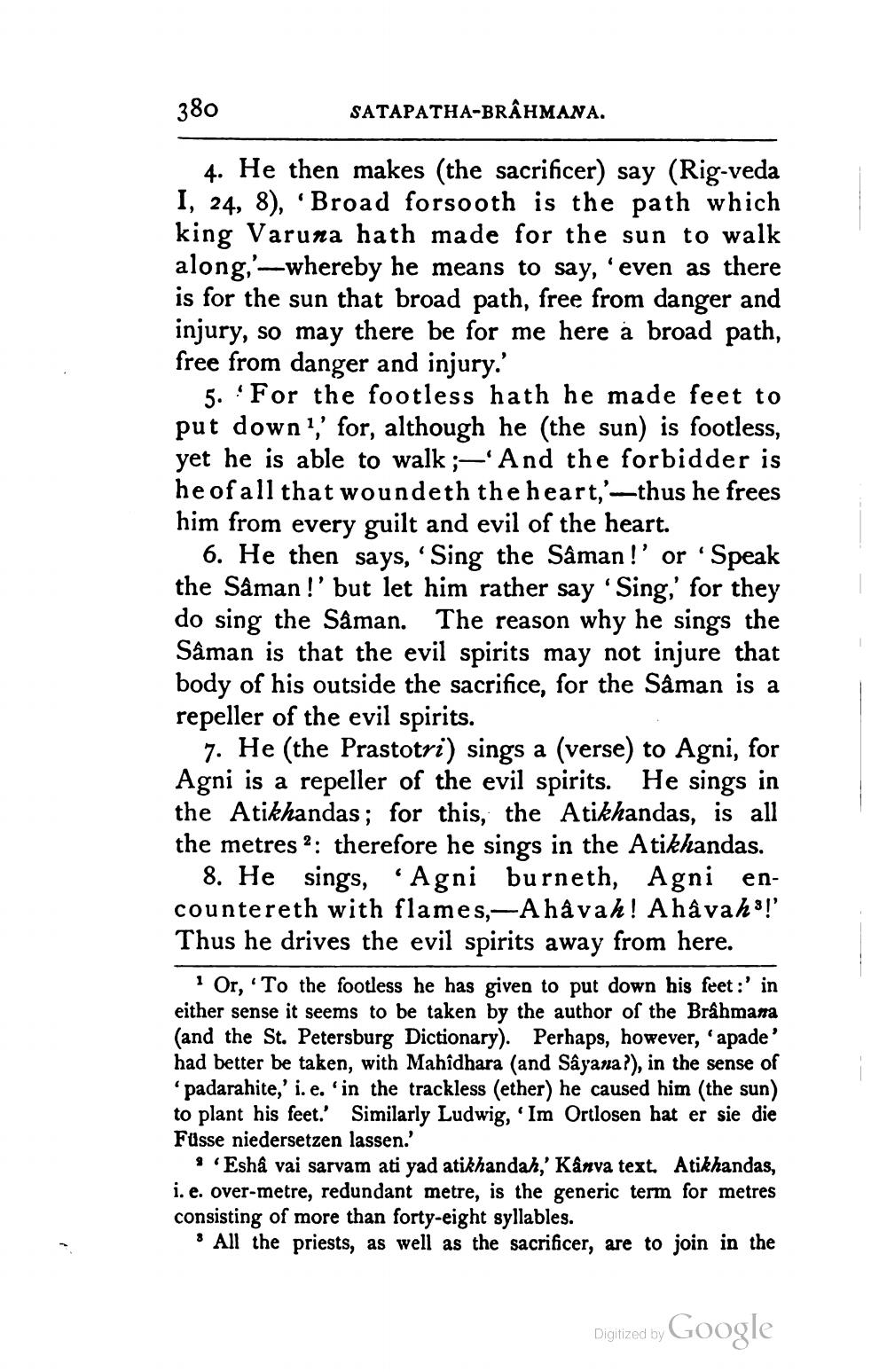________________
380
SATAPATHA-BRAHMANA.
4. He then makes (the sacrificer) say (Rig-veda I, 24, 8), 'Broad forsooth is the path which king Varuna hath made for the sun to walk along,'-whereby he means to say, 'even as there is for the sun that broad path, free from danger and injury, so may there be for me here a broad path, free from danger and injury.'
5. For the footless hath he made feet to put down?' for, although he (the sun) is footless, yet he is able to walk ;—' And the forbidder is he of all that woundeth the heart,'-thus he frees him from every guilt and evil of the heart.
6. He then says, 'Sing the Sâman!' or 'Speak the Sâman !' but let him rather say 'Sing,' for they do sing the Sâman. The reason why he sings the Sâman is that the evil spirits may not injure that body of his outside the sacrifice, for the Sâman is a repeller of the evil spirits.
7. He (the Prastotri) sings a (verse) to Agni, for Agni is a repeller of the evil spirits. He sings in the Atikhandas; for this, the Atikhandas, is all the metres 2: therefore he sings in the Atikhandas.
8. He sings, Agni burneth, Agni encountereth with flames,-Ahà vah! Ahâvah!' Thus he drives the evil spirits away from here.
Or, 'To the footless he has given to put down his feet :' in either sense it seems to be taken by the author of the Brahmana (and the St. Petersburg Dictionary). Perhaps, however, 'apade' had better be taken, with Mahadhara (and Sayana?), in the sense of
padarahite,' i. e. 'in the trackless (ether he caused him the sun) to plant his feet.' Similarly Ludwig, Im Ortlosen hat er sie die Füsse niedersetzen lassen.'
9.Eshả vai sarvam ati yad atikhandah,' Kanva text. Atikhandas, i. e. over-metre, redundant metre, is the generic term for metres consisting of more than forty-eight syllables.
* All the priests, as well as the sacrificer, are to join in the
Digitized by Google




